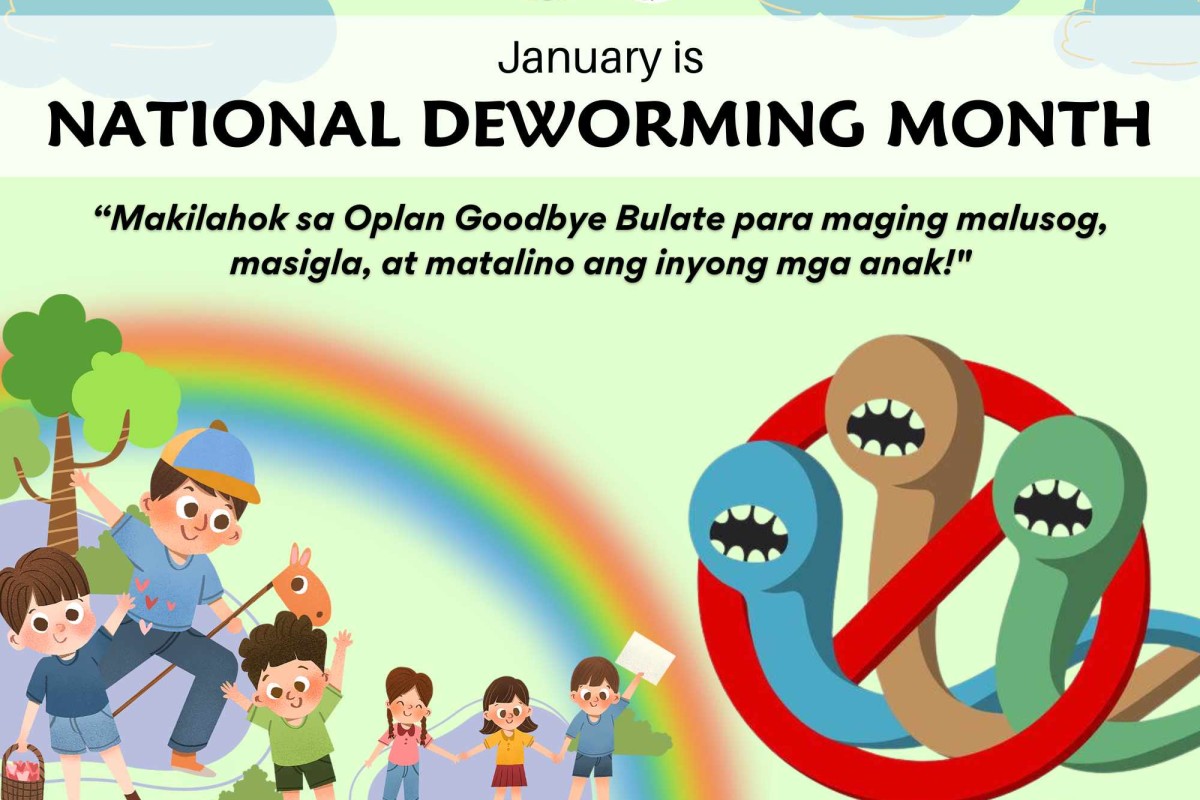LAGAWE, Ifugao (PIA) -- The Ifugao Provincial Health Office is urging parents and guardians to participate in the “Oplan Goodbye Bulate” drive to ensure the health and vitality of their children.
Amelia Kimayong of the Provincial Health Office emphasized the critical need for deworming, noting that parasites can impede physical and cognitive development particularly in children, leading to malnutrition, frailty, and hinders scholastic and physical progress.

Pregnant women may also experience anemia due to worm infections.
She explained that the incubation period for intestinal parasites varies from a few weeks to over three months, depending on the parasite type.
Kimayong underscored the importance of deworming every six months to prevent the severe consequences of worm infestations. The Department of Health leads the observance of National Deworming Month in January and July.
Deworming tablets such as Albendazole and Mebendazole, are widely recommended by the World Health Organization as effective medications for treating common intestinal worms. These are available in rural health units and barangay health stations.
Target demographic for deworming are children aged one year old and above, pregnant women, as well as adults who are diagnosed with parasitic worm infection.
This initiative aims to safeguard the health and well-being of children and communities. It also seeks to prevent and lessen Soil-Transmitted Helminth Infections or intestinal worms, which continue to be a public health concern affecting children, expectant mothers, food handlers, farmers, and indigenous groups.
Practical tips
Kimayong also shared some practical ways on how to prevent worm infection during the “Hummangan with PIA” radio program on Radyo Kiphodan 99.1 FM.
Hygiene: Wash your hands thoroughly before and after eating or preparing food; after touching soil or using the bathroom, ensure proper handwashing, and keep fingernails clean and short to minimize the risk of contamination.
Food Safety: Thoroughly wash fruits and vegetables before consumption, and avoid consuming raw meat, including beef, pork, chicken, and fish.
Cleanliness: Maintain a clean living environment to reduce the likelihood of worm infestation, and refrain from open defecation practices.
Water Safety: Consume only clean and safe water to prevent waterborne infections.
Personal Care: Take regular baths to uphold personal cleanliness, and wear shoes or slippers to protect against soil-borne parasites.
Food Handling: Always cover and store food properly to prevent contamination.
Pet Care: Implement regular deworming for pet cats and dogs to prevent transmission.
The theme for the National Deworming Month is "Makilahok sa Oplan Goodbye Bulate para maging malusog, masigla, at matalino ang inyong mga anak!" (JDP/FBR-PIA Ifugao)




